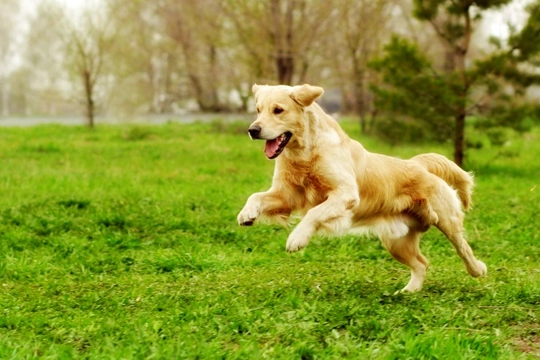
Five ways to reduce your dog’s tendency to roam
If your dog has a tendency to roam or wander off from your garden when your back is turned, this can soon turn into a real problem. Not only will you spend a lot of time and energy looking for your dog and trying to bring them home, roaming can be dangerous to both your dog and other people and their pets or property too – such as if your roaming dog runs into traffic or chases someone’s cat.
Roaming may annoy your neighbours and inconvenience others, and it can even attract the attention of the local council dog warden if your dog is a serial offender and pops up on their radar as a dog that is often to be found out loose and unsupervised.
However, dealing with roaming can be a real challenge as dogs can be very enterprising when they get an idea in their heads, and some dogs can escape and run off quickly when the incentive is there for them to do so!
If your dog roams and you are anxious to correct this and save yourself a lot of time, worry and hassle, this article is for you. Read on and you will learn five ways to reduce your dog’s tendency to roam, which can help to ensure that they stay safely enclosed where they should be in the future.
Spay and neuter
First up, dogs that are of reproductive age that have not been spayed or neutered are vastly more likely to roam than other dogs. This is a simple result of their instinctive drive to find a mate and reproduce, and is often a particular problem among male dogs, although unneutered female dogs can and often will roam too.
As we all know, dogs have a very acute sense of smell and a male dog can potentially scent a bitch in heat from a long distance away, and when they do, common sense tends to go out of the window as the dog in question concentrates on nothing other than getting to the female dog to mate.
This is perhaps the most common cause of roaming in unneutered male dogs, and unneutered females are also exponentially more likely to roam when in heat to find a mate too.
By having your dog spayed or neutered, you will dramatically reduce their urge to roam.
Provide enough exercise and stimulation
A dog that is bored or full of energy with nothing to do with it is an enterprising animal that will be very tenacious about finding something to entertain themselves with. If you put your dog out in the garden instead of taking them for a walk, if they are alone for large parts of the day or if they have nothing to do and entertain themselves with most of the time, they will seek and find alternatives of their own.
This many manifest as destructive behaviours, obsessive behaviours like digging, or trying to escape the yard or garden and go off roaming to find something more entertaining.
Review your dog’s exercise schedule and consider if they might not be getting enough walks, might be bored, or might be alone for too long at a time; if you address this problem, you are likely to reduce or even prevent roaming.
Train your dog to improve their recall
Dogs that are in general well trained and responsive to commands are less likely to misbehave in other ways, and a great way to work on your dog’s useful skills in a way that can also help with roaming is to improve their reliability for recall.
Recall is the command you give to your dog to return to you when called, and it is also one of the hardest commands to incentivise for dogs too.
However, working on recall as well as refreshing their general skills will make your dog more likely to look back to you for direction, and concentrate on commands and their handler, which can make calling your dog back if they bolt off easier.
Secure fencing and supervision
If your dog can get out of your garden, the fencing isn’t up to the task! Different dogs work out escape routes in different ways; some may dig a tunnel to burrow out under a fence, others might leap out over it and still others might work out a way to climb out.
Work out how your dog is letting themselves out of the garden and rework your fencing to accommodate for this – and remember that your dog might try something else when they find their usual escape route thwarted, so remain vigilant.
Dogs should not be left out in the garden unsupervised for long periods of time, and garden time is no substitute for company and entertainment, so remember that you need to supervise your dog and check in with them now and then, and never leave them outside on their own for too long, even if properly enclosed.
Company and socialisation
If your dog is lonely they might be happy to wander off following people who walk by or stop to say hello to them, so make sure that your dog isn’t starved of company and desperate for someone to talk to them and pay them some attention.
The company of other dogs and the opportunity to socialise with them is very important too, so if your dog doesn’t spend much time with other dogs, seek to correct this and give your dog opportunities to socialise each day, and this too can help to reduce roaming behaviour.



